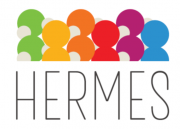RESEARCH
Objective of the Project
Disruptive energy generation technologies are urgently required to stave off catastrophic climate change. Now, more than ever, is the time to also to consider unconventional options. The subtopic c. Breakthrough zero-emissions energy generation for full decarbonisation of this call aims to answer this need. All of the research areas identified by the call are highly unconventional. As electrochemists, we will contribute to this call by working on hydrogen-metal systems. We propose to study hydrogen (and deuterium) evolution in unconventional conditions, i.e. on metal-hydrides and the main motivation for this work is based on the recent Nature perspective “Revisiting the cold case of cold fusion”. When loading deuterium into the Pd lattice, there is a chance that something very interesting will happen, resulting in production of excess heat. The first report of such reaction was published 30 years ago, but quickly dismissed by the scientific community. But what if there is really something? Can we afford to not to investigate this further, considering the current climate crisis? Google has recently funded a research project in this area, getting some interesting results but failing to produce excess heat. However, the team concluded that it was very difficult to achieve the required conditions reported for starting the excess heat production, and that “there remains much interesting science to be done in this underexplored parameter space.” This is a high risk/high reward project, but with aid of all the improved techniques and tools developed in the last 30 years, we believe that it is worth revisiting the topic. We will use state-of-the-art technologies to prepare, characterize and study electrochemical Pd-D system, both at room temperature and at temperatures up to 1100 K. We will focus on method development, with the special emphasis on reproducibility. If no nuclear effects are observed, we will gain information of the isotope effects for hydrogen evolution.
Here the project is introduced at the kick-off meeting of CleanHME, our sister project
